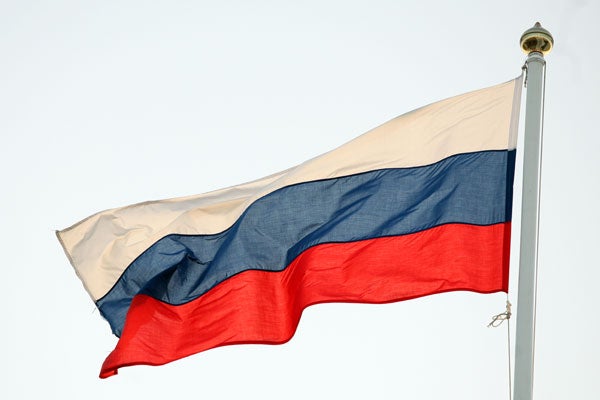
Yesterday and today, the House Ways and Means Committee and Senate Finance Committee held hearings on Russia’s abysmal human rights record and its looming accession to the World Trade Organization (WTO).
The Obama Administration wants Congress to provide permanent normal trade relations (PNTR) to Russia and scrap the 1974 Cold War–era Jackson–Vanik amendment, which denied Russia most-favored-nation status in trade.
The Administration, represented by Deputy Secretary of State William J. Burns, Secretary of Agriculture Tom Vilsack, and International Trade Representative Ronald Kirk, argued that if Congress does not waive Jackson–Vanik for Russia,U.S.firms will be put at a disadvantage vis-à-vis everyone else when Russia enters the WTO this August.
Private-sector witnesses attending the House hearing included Caterpillar’s CEO Doug Oberhelman, Michigan Farm Bureau president Wayne Wood, president of Argus Ltd. Michael Rae, and senior vice president of Medtronics James P. Mackin.
Russia is one of the world’s largest economies. The President’s Export Council estimates that the currently meager U.S.exports to Russia could increase when Russia joins the WTO. As Burns said:
Congress has a choice: it can extend Permanent Normal Trade Relations (PNTR) to Russia, giving American exporters and workers a level the [sic] playing field in one of the fastest growing markets in the world; or it can keep Jackson-Vanik in place, preventing American companies from reaping the benefits of an unprecedented opportunity to boost trade in a large and growing market.
While the commercial benefits are clear, one important issue remains on the table:Russia’s poor human rights record. Lawmakers need to address it.
Many Senators are demanding that a modern human rights bill—the Sergei Magnitsky Rule of Law and Accountability Act, introduced by Senators John McCain (R–AZ) and Ben Cardin (D–MD)—be passed before Russia graduates from Jackson–Vanik.
The Magnitsky bill is named after a whistleblower Russian lawyer and accountant, Sergei Magnitsky, who in 2009 was jailed and beaten to death after he had accused Russian police and tax officials of embezzling $230 million from the Russian treasury. Despite an international outcry, the Russian investigation exonerated police officers who were involved in the crime and gave some of them medals and even promotions.
Amidst this injustice and continuous inaction on the part of Russian authorities, the Magnitsky bill aims to punish the individuals linked to Magnitsky’s tragic death. The bill is also meant to set an example by showing that the U.S. does not neglect human rights over commercial interests.
The Magnitsky case is not the only one. Mikhail Khodorkovsky, former CEO of the YUKOS oil company seized by the Russian government in 2004–2005, is serving a nine-year prison term. He was sentenced twice by Russian courts on what appears to be contrived charges of tax evasion and fraud.
Amnesty International has recognized Khodorkovsky as a political prisoner. The Russian government expropriated YUKOS assets, paying no compensation to American shareholders, including pension funds, which suffered around $8 billion in losses.
Today, police brutality continues unabated: On May 6, hundreds of people were beaten by police SWAT teams in central Moscow, while in June the Russian police raided the apartments of several opposition leaders on the eve of a large rally in Moscow. To prevent the opposition leaders from participating in demonstrations, the police interrogated them.
The Obama Administration is not doing enough to address the Russian crackdown. That is where Congress should step in. Senator Max Baucus (D–MT) who chaired the Senate Finance Committee hearing today, rightly said in his statement that the U.S. should not disregard human rights and democracy, and he pledged to include the Magnitsky bill in the PNTR legislation. The House Foreign Affairs Committee already unanimously passed the legislation earlier this month, and its corresponding committee in the Senate is expected to approve it next week.
This is not the time to yield to the Kremlin. Demonstrating weakness on human rights and corruption would only make the Russian government less accountable, which is bad for the U.S. Congress should uphold America’s commitment to human rights by passing the Magnitsky bill before lawmakers grant Russia a PNTR status.
As we wrote earlier, passing the Magnitsky Bill along with PNTR would provide a solution that pinpoints and punishes gross violators of human rights while allowing U.S. firms to compete equally for business in Russia and elsewhere.
Russia’s membership in the WTO will greatly benefit Russia and the entire world economy. However, Congress should take action against those who systematically violate the natural rights of people not just in Russia but around the globe.































